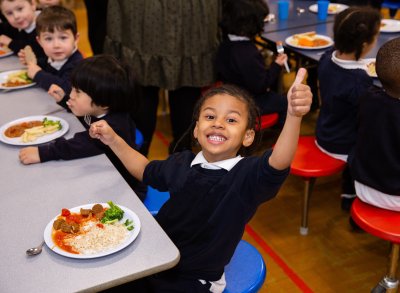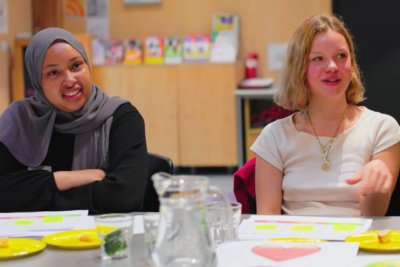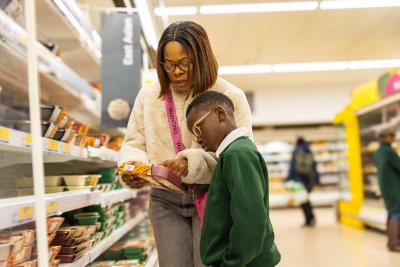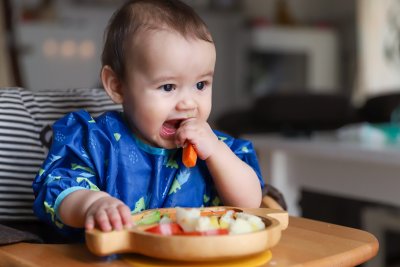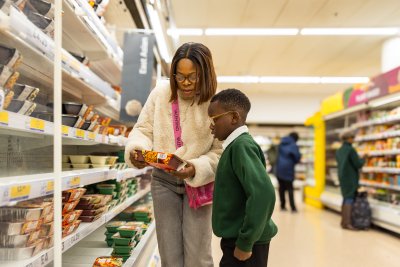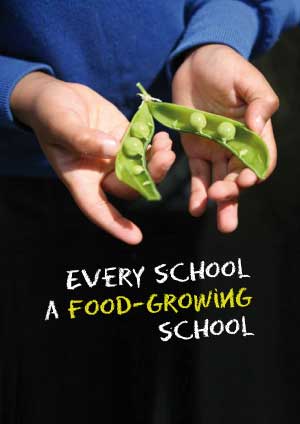
Every school a food-growing school
 Many schools already teach food-growing skills and have discovered for themselves that this can help to:
Many schools already teach food-growing skills and have discovered for themselves that this can help to:
- Teach children enterprise skills, such as organising the sale or donation of surplus produce.
- Build community spirit and a sense of citizenship, for example, linking up across the generations and supporting local charities.
- Encourage children to lead healthier lives, through physical activity outdoors and inspiring children to eat the fruit and vegetables they have grown.
- Reduce our environmental impact, by showing how locally grown, seasonal food can enhance biodiversity and reduce waste.
- Raise educational standards and improve behaviour, particularly for those less comfortable in a classroom setting.
Hard evidence of these benefits is accumulating, alongside the experience of schools, pupils and a wide range of organisations. By coming together to produce this short report, we aim to persuade the Department for Education to work with us to ensure that all children – not just some – can reap these benefits.
This report was complied by the Academy of Culinary Arts Chefs Adopt a School Trust, Children’s Food Campaign, Farming and Countryside Education, Farms for City Children, Federation of City Farms and Community Gardens, Food for Life Partnership, Foodshare, Garden Organic, Good Gardeners Association, Organic Research Centre, Royal Horticultural Society and School Food Matters.
Report contents
- Summary
- Introduction
- Teaching children enterprise skills
- Building communities and developing citizenship
- Helping children to lead healthier lives
- Reducing our environmental impact
- Raising educational standards
- Conclusion
Children's Food Campaign: Campaigning for policy changes so that all children can easily eat sustainable and healthy food.
Sustain
The Green House
244-254 Cambridge Heath Road
London E2 9DA
020 3559 6777
sustain@sustainweb.org
Sustain advocates food and agriculture policies and practices that enhance the health and welfare of people and animals, improve the working and living environment, promote equity and enrich society and culture.
© Sustain 2025
Registered charity (no. 1018643)
Data privacy & cookies
Icons by Icons8

